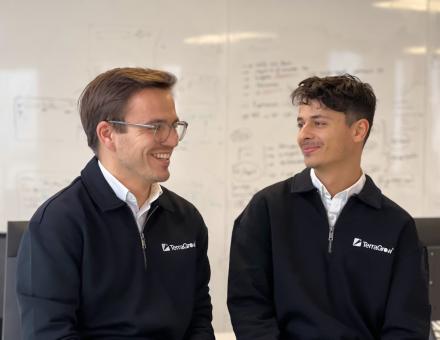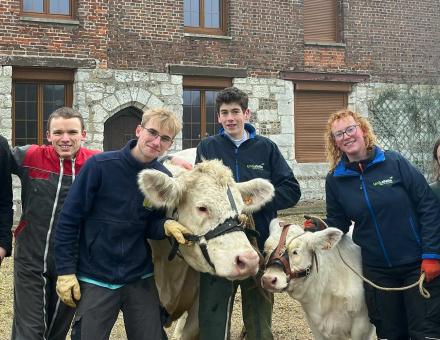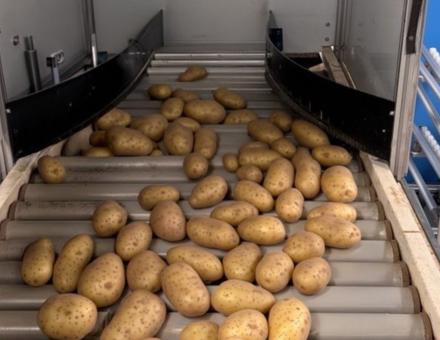The cAuldrons Finders team, made up of nine student engineers from the Sustainable Mineral Resources program, won two prizes in this global mining exploration competition, thanks in particular to the environmental impact study and artificial intelligence.
The accelerated changes and mutations of our societies depend intimately on mineral resources, such as lithium and nickel for electric vehicles. The objective of the "Sustainable Mineral Resources" career path is to train engineers capable of meeting tomorrow's challenges in terms of accessibility and transformation of resources while taking into account the associated societal and environmental issues. As part of this program, students have been participating for several years in an international mining exploration competition, the Next Generation Explorers Award (NGEA).
For this third participation in the NGEA, which took place during the annual convention of the PDAC (Prospectors & Developers Association of Canada) on March 6 in Toronto (Canada), UniLaSalle's geology students distinguished themselves by winning two prizes (Impact & Exploration Prize, and Public Prize) and by finishing second overall in this world mining exploration competition
The Lasallian team of cAuldron Finders, composed of Théo Royer, Théophile Cholet, Hugo Bescond, Yoann Philip, Elouan Froissart, Samuel Nautin, Claire Dugue-Boyer, Abdoulaye Sylla & Gregoire Brugnot, all 4th and 5th year Sustainable Mineral Resources students, won the Impact & Exploration Significance prize, and a $3000 prize.
This success was built through a study of the following:
- The improvement of the understanding of the mineral systems studied,
- The generation of new deposit targets with high prospectivity,
- The identification of economic, social and environmental benefits on these targets.
The exploration project studied by the cAuldron Finders team, which was located in Ireland, incorporated many innovations in sustainable development and social responsibility, which proved decisive in the jury's choice.
"We put ourselves in the shoes of a "junior" company offering a turnkey solution for the exploitation of two orogenic gold deposits. In addition to the geological analysis of the area entrusted to us, we carried out an economic study, a study of the plant location and an environmental impact study," explains Hugo Bescond, one of the student engineers involved in this competition. "By listing the species and protected areas (notably Natura 2000) as well as a historical heritage zone, we ruled out several deposits whose exploitation would have had a high environmental and/or societal impact."
The dossier presented by cAuldrons Finders was also enriched by an innovative project based on artificial intelligence. "Chemical elements are more or less correlated with each other. For example, the presence of zinc tells us that we will probably find lead. This is called 'pathfinding'. The artificial intelligence specially designed by the team automates the processing of the raw data in order to generate favorable areas according to the distribution of pathfinders."
A meticulous work that will have required nearly 2000 hours of work, accumulated since July for the 9 students involved.
After 3 years of participation in the Next Generation Explorers Award, the results are very positive for UniLaSalle, which has systematically qualified for the final phase of the competition. Moreover, the cAuldron Finders acted as outsiders because none of the students on the team were PhD students, unlike the competing teams.
UniLaSalle congratulates the student team, the accompanying teachers in mineral and digital resources with an honorable work of professors Lucien Corbineau and Hamilton Araujo, the UniLaSalle Alumni like Etienne Le Goff and his company GexplOre, as well as the whole faculty, contributed to this success which is part of the rich history of the UniLaSalle Polytechnic Institute.






